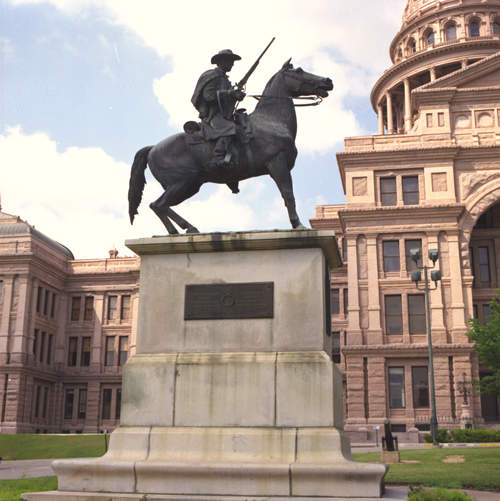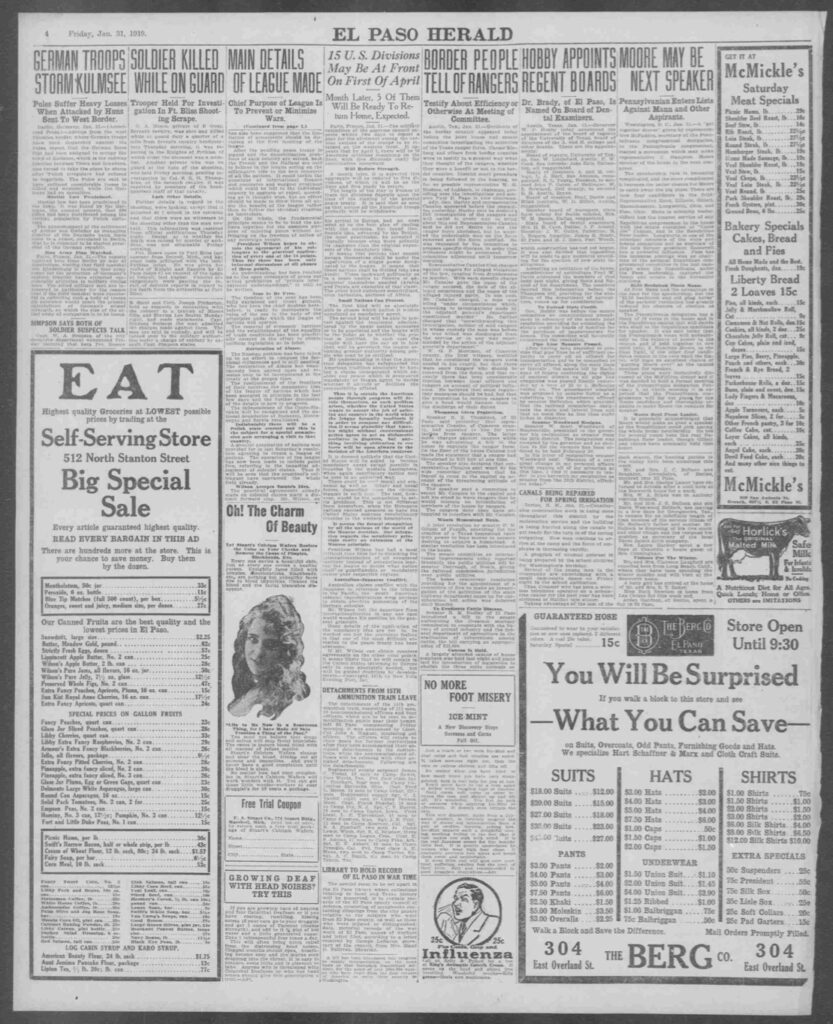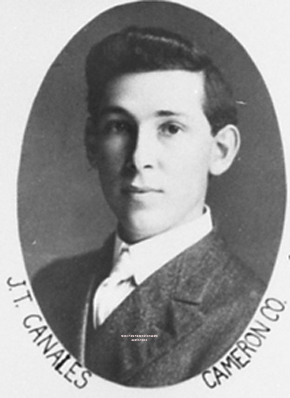#OTD on January 30, 1919, the first day of the Joint Committee of the Senate and the House in the Investigation of the Texas State Ranger Force (hereafter, “Canales Hearings”) took place in the Railroad Commission Hearing Room on the 2nd floor of the state capitol. Canales’ walk to the hearings was literally shadowed by Texas history, as the capitol grounds include the “Heroes of the Alamo Monument,” a statue marking Terry’s Texas Rangers, and a monument to Texas Confederate soldiers.

Reporters from the Associated Press, Dallas Morning News, San Antonio’s Express, Austin’s Statesman, Brownsville’s Daily Herald, San Antonio’s La Prensa and El Imparcial attended, underscoring the high stakes of the hearings.

William Bledsoe, representative from Lubbock, presided over the hearings. Adjutant General James Harley, the commander of the Rangers, led the defense of the force, joined by Robert E. Lee Knight, and Dayton Moses, attorney for the Southwest Cattle Raisers Association. No witnesses were called this first day; instead, both sides made their positions clear. Harley wanted consideration of the Rangers’ historical purposes, their recent work on enforcing the draft for World War I, and Canales’ motives. Canales avoided a wholesale rejection of the Rangers, noting that they had done a “great deal of good” but that recent practices were “a menace to the people and inimical to free government.” The law, he said, “can not be enforced by putting lawless men in charge.”

Canales’ stance reflected what historian Benjamin H. Johnson calls “Tejano Progressivism,” a belief in the impartial rule of law, education, economic development, and assertion of political rights as the basis of an effective response to Anglo racism.
Bledsoe asked Canales to file formal charges that would structure the hearings. Canales’ five allegations concerned recent events, but opened the door to what became a wider consideration of the state violence of 1915-19. The first two charges included allegations of torture, intimidation, and death threats in Duval County; the third accused Ranger Sergeant J.J. Edds of killing Lizandro Muñoz on his ranch in Starr County in October 1918. The fourth charge alleged Edds arranged for the murder of Sabas Ozuna and Federico Lopez in Jim Hogg County in September of 1918. The fifth asserted Florencio Garcia was killed in Ranger custody in Cameron County in April 1918 + Adjutant General failed to sanction the rangers.
Evidence related to these charges and other allegations of Ranger torture, harassment, and murder would be discussed the following day, treated in our next entry. This entry is a part of the #OTD in Ranger history campaign that @Refusing2Forget is running this year. Follow this website or @Refusing2Forget to learn more. Key secondary sources for this thread include Benjamin Johnson’s Revolution in Texas (pp 169-175), Monica Muñoz Martínez’s The Injustice Never Leaves You (182-216), Sonia Hernández and John Morán González, Reverberations of Racial Violence, and Richard Ribb, “Reader’s Guide to the Canales Hearings.”

